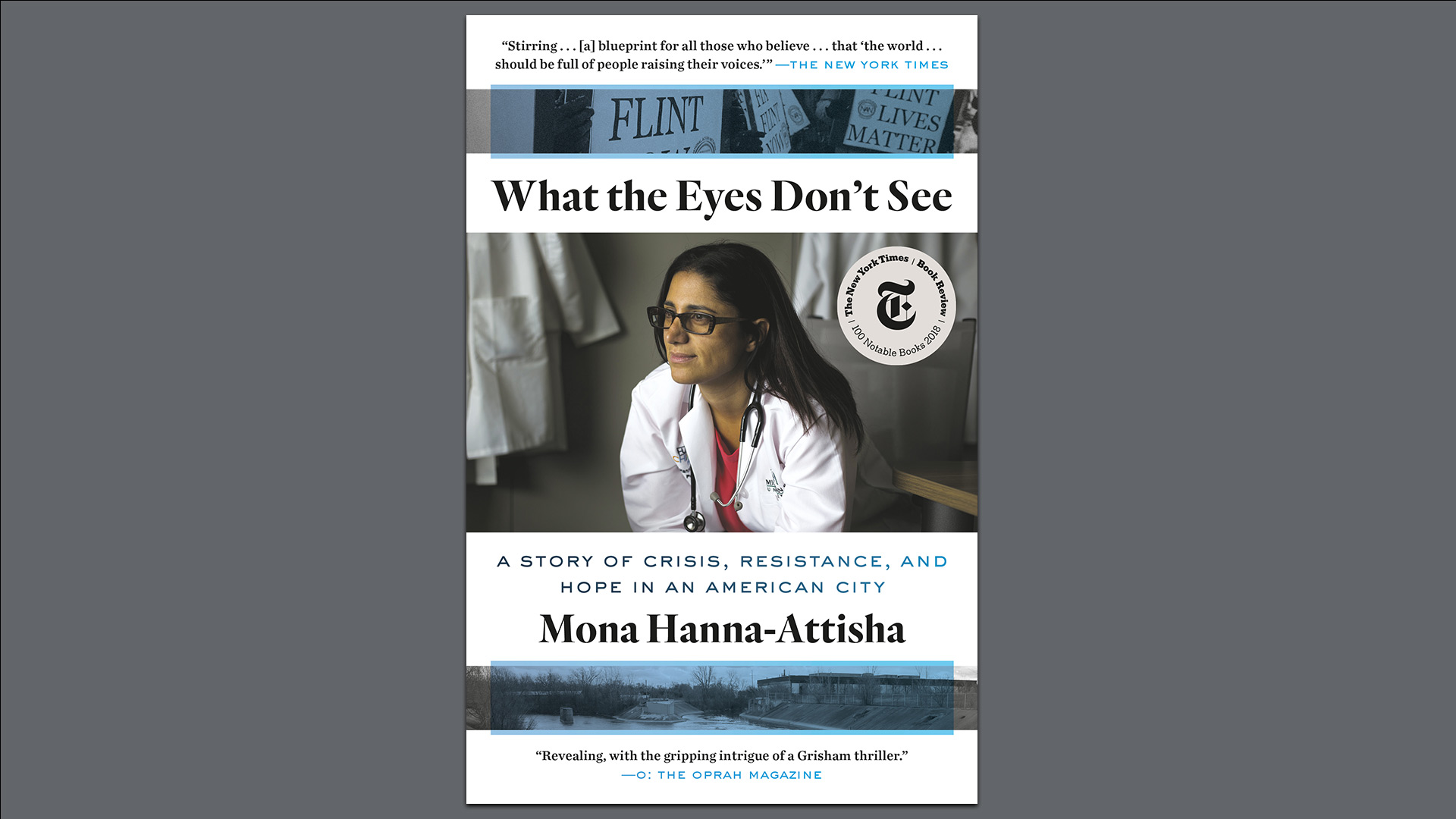- Future Students
- How to Apply
- Visit UHCL
- Admitted Students
- Tuition, Costs and Aid
- Degrees and Programs
- Contact Admissions
- Current Students
- Class Schedule
- Academic Calendar
- Advising
- Events
- Library
- Academic Resources and Support
- Student Services and Resources
- Alumni
- Lifetime Membership
- Alumni Events
- Update Your information
- Awards and Recognitions
- Give to UHCL
'What the Eyes Don't See': Common Reader selection explores environmental equality
August 11, 2022 | UHCL Staff

All human beings depend on clean air and water to live, but not all people are equally impacted when the physical environment is toxic. To further explore this issue and other topics surrounding environmental equality, University of Houston-Clear Lake’s Common Reader program has selected Mona Hanna-Attisha’s “What the Eyes Don’t See: A Story of Crisis, Resistance, and Hope in an American City” as its latest text for the First-Year Seminar Program.
Each year, a committee composed of faculty, staff and a student representative choose a book with overarching themes that resonate with UH-Clear Lake’s student population based on its engagement with current events and civic issues. The committee considers books with topics focusing on race, gender, sex, class, and its applications to the university, which is designated a Hispanic-Serving Institution.
“We thought this book was particularly important in terms of Houston’s own issues with environmental equality, justice and public health,” said Clinical Assistant Professor in the First Year Seminar and Humanities Anne Gessler. “We believe this topic will resonate with our students, faculty and staff who are reading with us.”
She said the book was about a whistleblower who worked in pediatric public health in Flint, Michigan. “This person discovered there was lead in the water and it was negatively impacting children, particularly children of color,” she explained. “There are a lot of parallels in Houston pertaining to environmental equality and justice.”
The water contamination issue in Flint was reported in 2014 and lasted two years. After an extensive effort to replace the lead pipes, the water quality returned to an acceptable level, but some still express doubts about the water's cleanliness.
“We’ll be working with the Office of Student Involvement and Leadership to talk about public health awareness, and discussing how students and faculty can influence through community actions such as writing petitions or writing a congressperson,” she said. “It’s an environmental equality issue. Public health is not an abstraction. Water and air quality impacts everyone’s daily life and affects our ability to learn, live a quality of life, and often has different implications for people with a lower economic status.”
Gessler said there would be a list of events associated with the topics discussed in the book that would take place throughout the upcoming fall and spring semesters. For more information about the Common Reader, go online.






